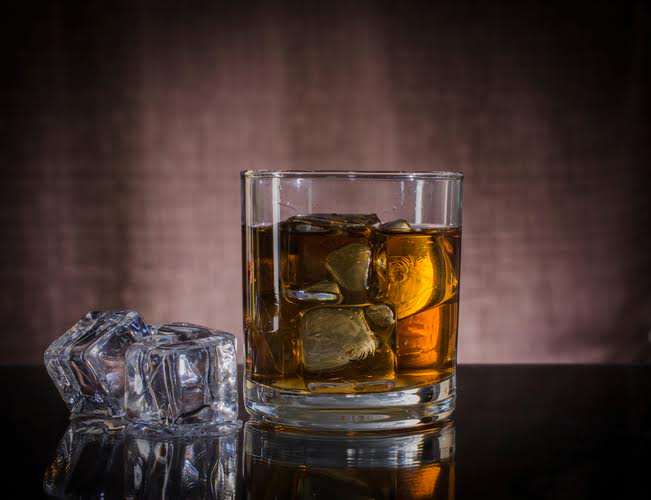If you have an allergy, your immune system over-reacts to contact with a trigger or “allergen.” If you have an alcohol allergy, your immune system treats alcohol as a threat. It responds http://clinic-virtus.com/rehab-effektivnaya-narkologicheskaya-pomoshh/ to alcohol by producing antibodies known as immunoglobulin E (IgE). Sulfites naturally found in wine and beer can cause asthma symptoms in people who are sensitive to sulfites.
Psychic Medium Located Missing Mom’s Dead Body, Daughter Says
Even less common is an allergy or intolerance to corn-based liquors like bourbon. If drinking alcohol—also known as ethanol—gives you food allergy symptoms such as flushing or hives, you may have an intolerance to alcohol. A food allergy is an abnormal immune reaction to things we eat, while a food intolerance is an adverse reaction to food that does not involve the immune system. Nuts and nut products are used in a surprising number of cocktail ingredients — most of which are not explicitly labeled as such.
What causes alcohol intolerance?
- For a 60-year-old, one drink per day may have more heart disease protection than potential harm.
- It seems drinking whiskey can do a person’s brain some good in the long-term.
- According to the Cleveland Clinic, alcohol intolerance is caused by a genetic metabolic disorder that prevents the body from producing the enzymes necessary to process alcohol.
- However, one drink does not mean filling a glass to the brim with some smooth Tennessee whiskey (although, sometimes that seems like a great idea).
- If beer seems to be the issue, it’s probably the yeast, says Dr. Glatter.
- It helps to read the product label, although many ingredients used in the fermentation or distillation process may not be included.
- If you have a true alcohol allergy, even small amounts of alcohol can cause symptoms.
Alcohol may also act as a preservative for cough medicines, which helps extend these products’ shelf life. Alcohol is added to cough medicines, but it’s probably not for the reason you think. Some http://kuinje.ru/english3.php of the compounds found in cough medicine don’t dissolve easily in water but do dissolve in ethanol (alcohol). Alcohol is rumored to work as a decongestant, but actually, the reverse is true.
- But, if it happens after drinking, without any other weird lifestyle or dietary changes, there’s a high probability that the symptoms are linked to those wine spritzers.
- If you’re allergic to another ingredient contained in certain alcoholic products, switching to a different drink might be an option.
- This is the same chemical involved in allergic reactions in the body.
- Another type of allergen, lipid transfer protein (LTP), is found in fruits, vegetables, nuts, seeds and cereals, and can also be present in some alcoholic drinks.
Risk factors
Allergies to brewer’s yeast and other yeasts have been well-documented in the medical literature. Yeast is used in all fermented alcoholic beverages, including beer, wine, hard cider, and sake. Many foods, including red wine and aged cheese, are high in histamine. This is the same chemical involved in allergic reactions in the body. In some cases, reactions can be triggered by a true allergy to a grain such as corn, wheat or rye or to another substance in alcoholic beverages.

And, when it comes to drinking too much, your brain will never be the same. “The system is forever changed,” director of the National Institute on Alcohol Abuse and Alcoholism, George F. Koob, Ph.D., told HuffPost. Rarely, severe pain after drinking alcohol is a sign of a more serious disorder, such as Hodgkin’s lymphoma.
Turns out, it may be a good idea to have hot toddies on more of a regular basis. If people drink whiskey every night, they may not even have gotten sick in the first place, according to a study done by Oregon Health & Science University. Unfortunately, nothing can prevent reactions to alcohol or ingredients in alcoholic beverages. To avoid a reaction, avoid alcohol or the particular substance that causes your reaction. Having a mild intolerance to alcohol or something else in alcoholic beverages might not require a trip to a doctor. Simply avoid alcohol, limit how much you drink or avoid certain types of alcoholic beverages.
- While not as common, some people with asthma or hay fever also find that alcohol can trigger their condition.
- Grace Jones, who was once the oldest woman in Great Britain, told Gloucestershire Live, “My doctor said ‘keep up with the whisky Grace, it’s good for your heart.'” Turns out, her doctor was onto something.
- However, if you have a serious reaction or severe pain, see your doctor.
- Symptoms of an alcohol allergy include rashes, itchiness, swelling and severe stomach cramps.
- This is present in many alcoholic drinks, particularly red wines, and can cause headache, flushing, nasal symptoms, gut symptoms or asthma.
- Small amounts of alcohol can cause vasodilation — a widening of blood vessels — which can worsen a runny nose or congestion.

Sure, whiskey may make it easier to fall asleep, but it could be what’s responsible for keeping you up all night long too — and we don’t just mean because you’re busy enjoying it at a party. Grace Jones, who was once the oldest woman in Great Britain, told Gloucestershire https://www.crazy-frog.us/page/2/ Live, “My doctor said ‘keep up with the whisky Grace, it’s good for your heart.'” Turns out, her doctor was onto something. So to play it totally safe when my allergies are acting up, I guess I’ll swap my usual Pinot for one of these anti-inflammatory iced teas.